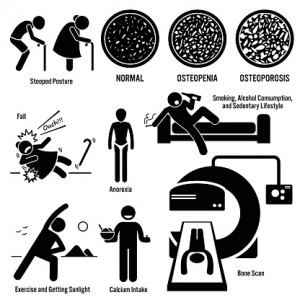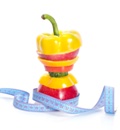The Best Diet To Combat Menopause
For many women, it's a period that is associated with more than just physical discomfort. The emotional stress linked with pre-menstrual syndrome has the potential to cause disruptions in any woman's life. Fortunately, there is a lot that can be done to take control. A vast majority of the symptoms of PMS, and even menopause can be minimized, with some dietary measures.
DIET TO COMBAT PMS
Classically, a woman experiences one or more of the following, in the week preceding menstruation - anxiety, tension, headaches, depression, breast tenderness, water retention, bloating, low energy and irritability.
Vitamin B6 has been shown in many studies to help many pre menstrual sufferers. Lately, researchers have discovered that Vitamin B6 combined with zinc is even more effective. (The latter helps convert B6 to its active form in the body).
Cereals made from wheat and bran, beans, lentils are rich in Vitamin B6.
Magnesium is particularly effective in reducing the syptoms of breast tenderness and swelling. More recently, scientists have found that GLA or gamma-linoleic acid; found in evening primrose oils has a 60 % success rate. (Both magnesium and GLA have several other beneficial effects in the body.) They are essential for all of us, but even more so for those with PMS.
On average, within 3-5 months on a diet or supplement program high in Vitamin B6, zinc and magnesium, a significant improvement can be achieved.
In some cases of PMS, hormonal changes disturb blood sugar control and bring on sugar (and stimulant) urges, associated with tiredness and irritation. In such cases, a low sugar, no stimulant diet can make a remarkable difference. Avoid sodas, concentrated juices, sauces and high amounts of caffeine. In a small percentage of women, PMS indicates a pronounced hormonal imbalance, which responds neither to diet, nor supplements. Such an imbalance is usually due to estrogen dominance and a relative lack of the hormone progesterone. This condition can be bought about due to prolonged use of the birth control pill. It needs testing and treatment by a qualified nutrition consultant or doctor.
WINNING THE WAR AGAINST MENOPAUSE.
The natural transition from the childbearing phase of life for every woman, menopause often occurs between the ages of 45 to 50 (sometimes earlier). It may arrive without many symptoms, but is often accompanied by a host of them such as hot flashes, night sweats, and tiredness and joint pains.
CALCIUM - THE SKELETON IN YOUR CUPBOARD.
Calcium assumes far greater importance during these years. In fact, a combination of calcium and magnesium in a 'bone formula' tablet (in addition to vitamin D) is often more effective than standard calcium tablets. These work best when eaten with high protein foods (meat, eggs, beans) and prior to bedtime, since calcium helps promote sleep. Ideally, younger women should start taking calcium supplements (and not wait till menopause) to build up the calcium 'stockpiles' in the bones. Start consuming high calcium foods such as non-fat skimmed milk, dairy products and beans.
FOLATE - THE FINAL FIGHTER.
Vitamin B9 or folic acid (40-60 mg) is very beneficial. Oranges , spinach, leafy green vegetables, beans, and walnuts are rich sources of folic acid.
-
TRX Trainer Review
The TRX trainer is a relatively new piece of fitness equipment that fo
-
Size Matters! - Portion Control Tips Made Easy
Portion Control Scenario: you go out for dinner and order spaghett
-
Some Facts About Mesothelioma Case
Understanding Mesothelioma Case:Mesothelioma case is a legal proce
-
LOSE THOSE POUNDS EXTRAS WITH THESE TIPS
If you follow a three-day diet and now you complain because you do
-
Lose Thigh Fat Tips Including Inner Thigh
Fat thighs are one of the major problem
-
Carbohydrates And Weight Loss, Whats The Deal?
Education is a huge problem when it come
- DON'T MISS
- Hoodia Products
- Weight Loss The PH Diet Program
- Treatment For Weight Loss And Fast Reduce Obesity
- Exercice To Have Body Fat Loss
- Emotional Eating and Coping With Overwhelm
- The Best Way To Loose Weight And Eat Healthy
- 6 Ways to Cut Calories Every Day
- Three Natural Ways to Reduce Body Fat
- Biking Can Help You Lose 10 Lbs Or More
- How To Lose Weight Easily And Healthily




